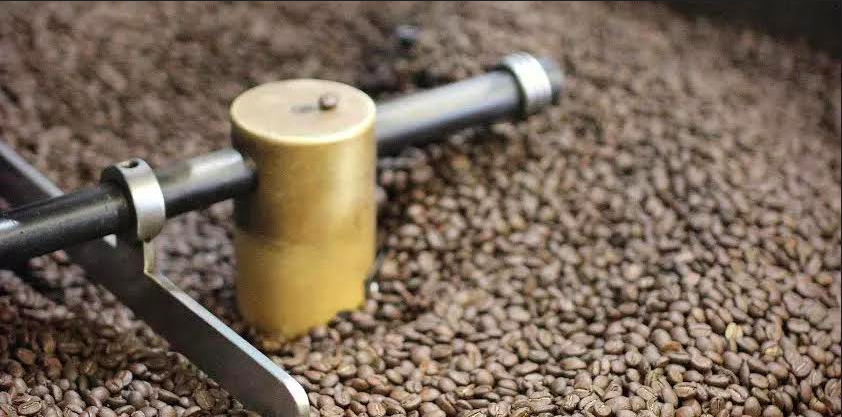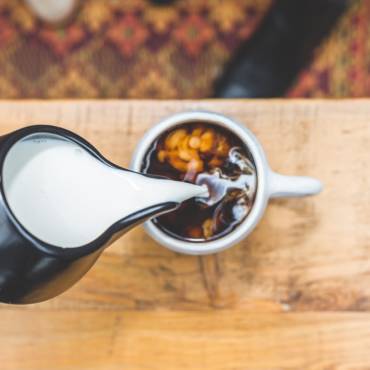Before Jarret Stopforth takes his first sip of coffee, he adds cream and sugar to mask the bitterness.
But then, he thought, why settle for a regular cup of joe? So the food scientist decided to reengineer coffee, brewing it without the bitterness — or the bean. “I started thinking, we have to be able to break coffee down to its core components and look at how to optimize it,” he explains.
Stopforth, who has worked with other food brands such as Chobani, Kettle & Fire and Soylent, partnered with entrepreneur Andy Kleitsch to launch Atomo. The pair turned a Seattle garage into a brewing lab and spent four months running green beans, roasted beans and brewed coffee through gas and liquid chromatography to separate and catalog more than 1,000 compounds in coffee to create a product that had the same color, aroma, flavor and mouthfeel as coffee.
“As we got deeper into the process, we learned more about the threats to the coffee world as a whole — threats to the environment from deforestation, global warming and [a devastating fungus called] rust, and we were even more committed to making a consistently great coffee that was also better for the environment,” Stopforth says.
The future of coffee is uncertain. The amount of land suitable for growing coffee is expected to shrink by an estimated 50% by 2050, according to a report by the International Center for Tropical Agriculture.
A concept steeped in history
Atomo won’t reveal exactly what its beanless coffee is made of, but the company says it is a mixture of dozens of compounds found in food, such as antioxidants, flavonoids and coffee acids. Atomo adds caffeine to its blend.
Atomo, which is slated to release its first products in 2020, is not the first to brew coffee without beans. Other startups have made the popular beverage with foods ranging from mushrooms to acorns but have failed to gain market share.
But chicory is proof that beanless coffee can catch on. Made from the roasted ground root of its namesake plant, chicory dates back to the 1800s, when coffee shortages forced people to seek substitutes, and has since become a staple in New Orleans.
Read more here: https://www.npr.org/sections/thesalt/2019/07/08/737628786/a-bitter-end-for-regular-joe-scientists-engineer-a-smooth-beanless-coffee




